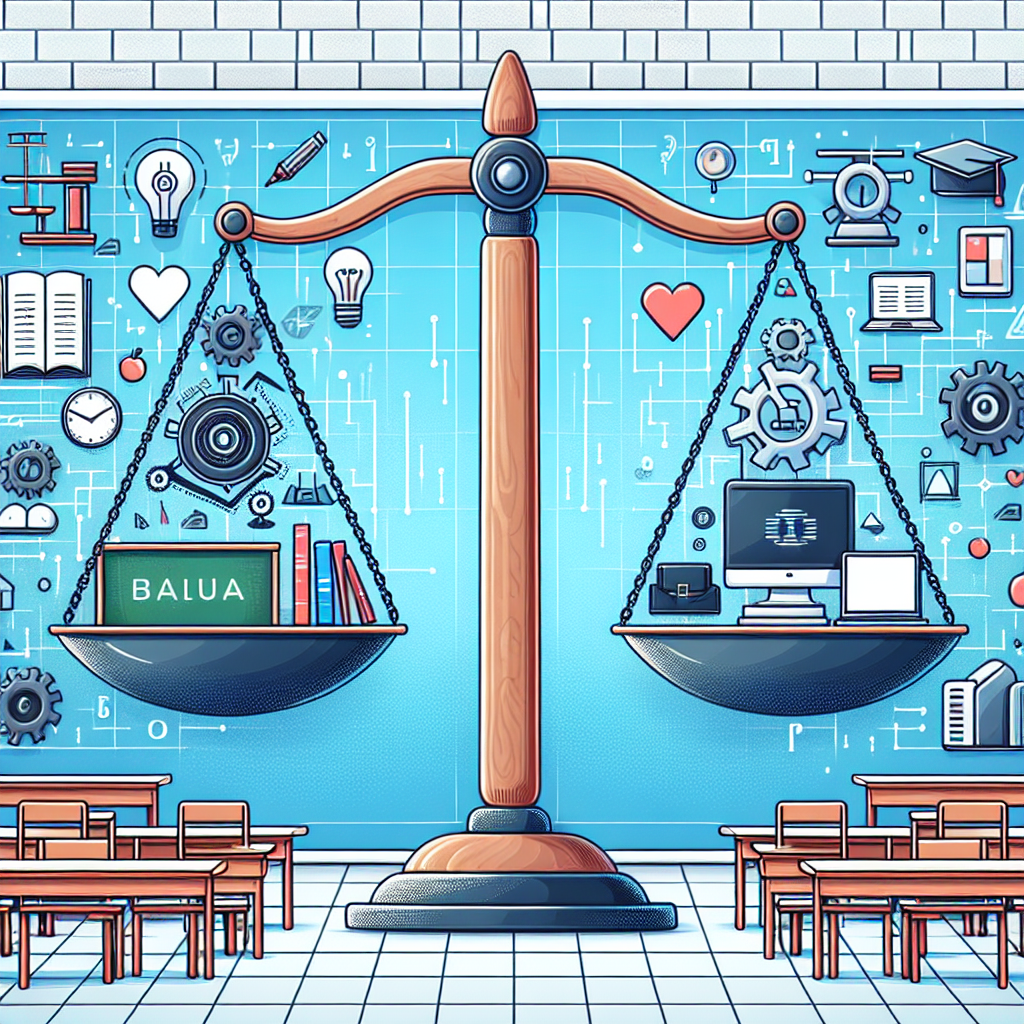The rapid development of artificial intelligence (AI) has brought about significant changes in various industries, including education. AI technology is increasingly being integrated into classrooms to enhance teaching and learning experiences. While AI has the potential to revolutionize education by personalizing learning, automating administrative tasks, and improving educational outcomes, it also raises ethical implications that need to be carefully considered.
One of the key ethical issues surrounding the use of AI in education is the potential for bias and discrimination. AI systems are trained on data sets that may contain biases, leading to unfair outcomes for certain groups of students. For example, if an AI system is trained on data that reflects gender or racial biases, it may inadvertently perpetuate these biases in its decision-making processes. This could result in discriminatory practices in areas such as admissions, grading, and student support services.
Another ethical concern is the lack of transparency and accountability in AI systems. Many AI algorithms operate as black boxes, meaning that their decision-making processes are not easily understood or explained. This lack of transparency raises questions about who is responsible for the outcomes produced by AI systems, and how they can be held accountable for any errors or biases that may arise.
Privacy is also a significant ethical issue when it comes to AI in education. AI systems often collect and analyze large amounts of data about students, including their academic performance, behavior, and personal information. This raises concerns about how this data is being used, who has access to it, and how it is being protected from unauthorized access or misuse.
Furthermore, there are ethical implications related to the impact of AI on the role of teachers. As AI technology becomes more sophisticated, there is a concern that it may replace teachers in certain aspects of their work, such as grading assignments, providing feedback, and even delivering lessons. This raises questions about the role of human teachers in the education system, and how they can adapt to working alongside AI systems in a way that benefits students.
Despite these ethical concerns, there are also potential benefits of AI in education that cannot be ignored. AI has the potential to personalize learning experiences for students by providing tailored recommendations and support based on their individual needs and learning styles. It can also automate administrative tasks, freeing up teachers to focus on more meaningful interactions with students.
In order to address the ethical implications of AI in education, it is important for educators, policymakers, and technology developers to work together to establish clear guidelines and regulations for the use of AI in educational settings. This includes ensuring that AI systems are transparent, accountable, and fair, and that student privacy is protected.
Additionally, there needs to be ongoing monitoring and evaluation of AI systems to ensure that they are not perpetuating biases or discriminating against certain groups of students. Educators also need to be provided with the necessary training and support to effectively integrate AI technology into their teaching practices in an ethical and responsible manner.
In conclusion, the ethical implications of AI in education are complex and multifaceted. While AI has the potential to revolutionize education by personalizing learning experiences and improving educational outcomes, it also raises concerns about bias, transparency, privacy, and the role of teachers. By addressing these ethical issues proactively and collaboratively, we can harness the power of AI to create a more inclusive, equitable, and effective education system for all students.
FAQs:
1. How can educators ensure that AI systems are not perpetuating biases in education?
Educators can ensure that AI systems are not perpetuating biases by carefully monitoring and evaluating the data sets that these systems are trained on. They should also be vigilant in examining the outcomes produced by AI systems to identify any potential biases or discriminatory practices. Educators should also advocate for transparency and accountability in AI systems, and work with technology developers to ensure that these systems are fair and equitable.
2. What steps can be taken to protect student privacy in the use of AI in education?
To protect student privacy in the use of AI in education, educators and policymakers should establish clear guidelines and regulations for the collection, storage, and use of student data. They should also ensure that AI systems are designed with privacy in mind, and that appropriate security measures are in place to protect student data from unauthorized access or misuse. Educators should also educate students and parents about their rights and responsibilities regarding the use of AI technology in education.
3. How can teachers adapt to working alongside AI systems in the classroom?
Teachers can adapt to working alongside AI systems in the classroom by embracing the potential benefits of AI technology, such as personalized learning experiences and automated administrative tasks. They should also seek out training and professional development opportunities to enhance their understanding of AI technology and how it can be integrated into their teaching practices. Teachers should also communicate openly with students about the role of AI in their education, and how it can support their learning and growth.

